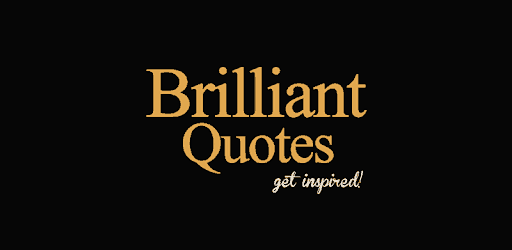Quotes are very important in our daily lives because they keep us motivated and inspired. And luckily for us, we do not need to surf the web to have access to them anymore since there are lots of applications that can satisfy that need right now. Let’s see a few of them in our list of 7 Best Quote Apps For Your Android And iPhone:
1. Quotes By Ultabit
This is a very useful app for your Android and iOS devices which contains quotes for various purposes. Just access the quotes you want and have them saved or shared with your family and loved ones. You can even set a reminder and select random background pictures for your everyday quotes.
2. Best Life Quotes

This is a brilliant app with a beautiful collection of quotes and wallpaper images and it possesses over 1000 special quotes that will keep you inspired. Users are also allowed to use quotes as wallpaper and background.
Must Read: 2000+ Best Facebook Status Quotes Ever | Love | Life |
It can be shared with your family and loved ones for free as well. In this one, you will have access to love quotes, wish quotes, advice, funny, poem and so on.
3. Quotes Creator

This is an uncomplicated app that lets you create and share your quotes easily. It possesses a beautiful UI with a customize option that will help you to customize text color, fonts, text size, background and so on. This app also allows you to use a photo from your gallery as a background picture. Every quote you create can be shared on Facebook, Instagram e.t.c.
4. Mirakee

This is an auto quote generator app that lets you create unrestricted quotes on your mobile device for free.
Must Read: 10 Best Horoscope Apps For Android
It is the quickest and simple to use quote app with a fully customize option. Mirakee can be used to create a new quote by choosing different categories. Its collection of quotes includes inspiring, funny, motivated, love, comedy and so on.
5. Famous Quotes
This app deals with special quotes and there are over 53,000 of them. The quotes can be shared with your family and loved ones and the app is simple to navigate and use. Famous Quotes helps users get an author by searching on it. It even comes with an option to seamlessly jump, shake, swipe, or tap to get an author.
6. Brilliant Quotes

Still, on the topic of best quote apps for Android, Brilliant quotes app is another highly recommended app. This app possesses several hand written quotes from history and you can search and browse quotes by author or category.
Must Read: 5 Best Harry Potter Apps For Your Android Or iPhone
It offers quotes of the day to its users according to your interest and behavior. Users can view, read and vote in this one. One unique feature it has is the option to star your favorite quotes.
7. Color Cap
This is a well-known quote app that lets you include custom text on a picture. You need to just use a picture and easily select font style and color while writing text on a picture. This app also allows you to create hilarious faces by adding some funny text on your friend’s picture.
More Information About Motivation
Motivation is the experience of desire or aversion…You want something, or want to avoid or escape something. As such, motivation has both an objective side – a goal or thing you aspire to – and an internal or subjective aspect: it is you that wants the thing (or wants it to go away).
At minimum, motivation requires the biological substrate for physical sensations of pleasure and pain. Animals can thus want or disdain specific objects based on sense perception and experience.
But motivation does not stop there. The capacity to form concepts and to reason allows humans can go beyond this minimum state, with a much greater possible range of desires and aversions.
This much greater range is supported by the ability to choose one’s own goals and values, combined with time horizons for value achievement that can encompass years, decades or longer, and the ability to re-experience past events.
Some models treat as important the distinction between extrinsic and intrinsic motivation, and motivation is an important topic in work, organizational psychology, administrative organization, and management as well as education.
The definition of motivation as experienced desires and aversions highlights the association of motivation with emotion. Emotions are automatic appraisals based on subconsciously stored values and beliefs about the object.
To the extent that distinct emotions relate to specific subconscious appraisals (e.g., anger —injustice; guilt —violation of a moral standard; sadness—loss of a value; pride —the achievement of a moral ideal; love —valuing an object or person; joy —the attainment of an important value; envy —wanting the attainments of another, admiration —valuing the attainments of another, etc.), motivation theory involves specifying content theories – values that people find motivating – along with mechanisms by which they might attain these values (mastery, setting challenging goals, attending to required tasks, persistence, etc).
Changing motivation – either one’s own or that of others (e.g. employees) is another focus of motivation research, for instance altering how you choose to act on your emotions, or re-programming them by modifying one’s beliefs and values.
Motivation as a desire to perform an action is usually defined as having two parts, directional such as directed towards a positive stimulus or away from a negative one, as well as the activated “seeking phase” and consummatory “liking phase”. This type of motivation has neurobiological roots in the basal ganglia, and mesolimbic, dopaminergic pathways.
Activated “seeking” behavior, such as locomotor activity, is influenced by dopaminergic drugs, and microdialysis experiments reveal that dopamine is released during the anticipation of a reward. The “wanting behavior” associated with a rewarding stimulus can be increased by microinjections of dopamine and dopaminergic drugs in the dorsorostral nucleus accumbens and posterior ventral pallidum.
Opioid injections in this area produce pleasure, however outside of these hedonic hotspots they create an increased desire.
Furthermore, depletion or inhibition of dopamine in neurons of the nucleus accumbens decreases appetitive but not consummatory behavior.
Dopamine is further implicated in motivation as administration of amphetamine increased the breakpoint in a progressive ratio self-reinforcement schedule. That is, subjects were willing to go to greater lengths (e.g. press a lever more times) to obtain a reward.
Motivation can be conceived of as a cycle in which thoughts influence behaviors, drive performance affects thoughts, and the cycle begins again.
Each stage of the cycle is composed of many dimensions including attitudes, beliefs, intentions, effort, and withdrawal which can all affect the motivation that an individual experiences.
Most psychological theories hold that motivation exists purely within the individual, but socio-cultural theories express motivation as an outcome of participation in actions and activities within the cultural context of social groups.
There you have it – a comprehensive list of best quote apps for Android and iPhone. If you have any other recommendations, feel free to drop them in the comment section below.



